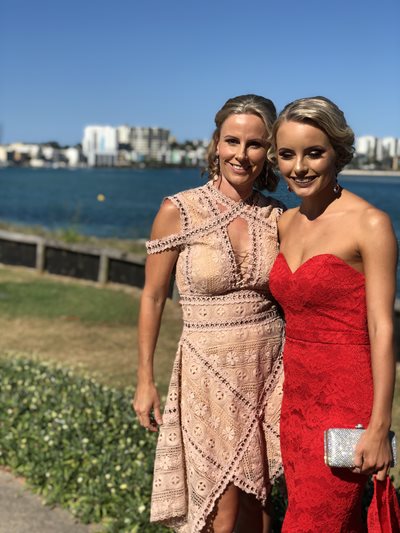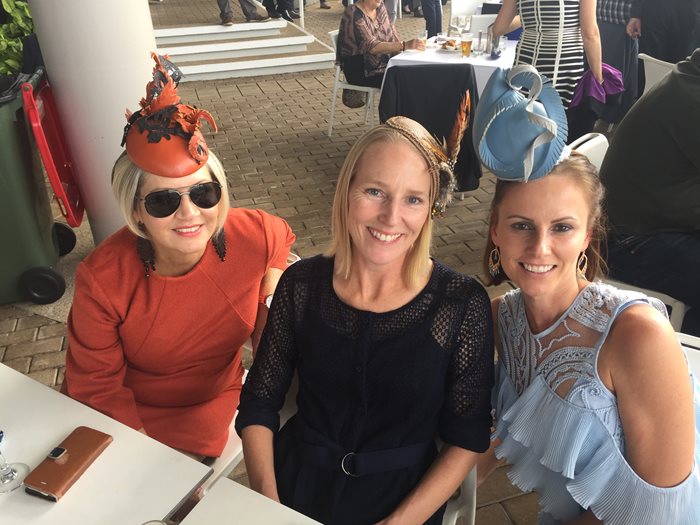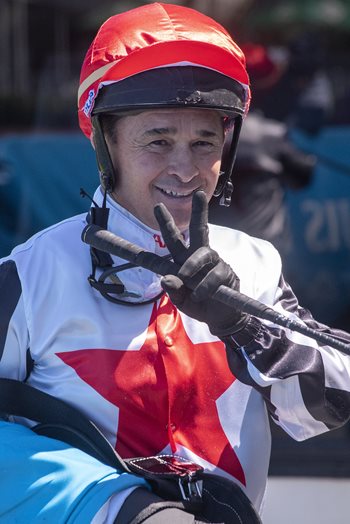Jockey manager Melissa Shield was not so much born into racing as adopted into it.
By Ross Prowd
Melissa Shield was raised in the racing heartland of Ascot and moved later to Hamilton. Her father, Keith Lean, worked for Ansett at Brisbane Airport, another industry that was essential to a much more working class area than we see today.
Keith and his wife, Leslee, became close friends with the Wrigleys, Mervyn and Margaret. Keith would accompany Merv to the races as often as he could, and the Wrigleys were to become the godparents of a young Melissa Lean.
As Merv Wrigley, rated by many as the greatest apprentice jockey Queensland has ever seen, transitioned from riding to training, the two families spent a lot of time together. Many Saturday afternoons as a young girl Melissa would dress in her heels and stockings and head to the races just to be close to Aunty Marg and Uncle Merv, who she adored.
Melissa enjoyed watching the horses, but most of her afternoons at the races consisted of just sitting and listening to the racing stories. These did not stop at the track as the Leans would visit the Wrigley stables at every opportunity and Keith and Merv conducted a never-ending commentary on the racing industry and Merv’s horses.
The Wrigley stable stars included Report The Call and Durham Lodge, but it was a lesser light in Renaissance that took Melissa’s eye.
“There was just something special about him. I was always drawn to him at the stables when we would go around and visit. His temperament and probably also the fact that I was old enough to really appreciate it by then,” Melissa said.
A young Shane Shield had become friends with Melissa’s brother by then, and also formed a close bond with her father—although not yet catching Melissa’s eye. That took a bit longer, but by the time Melissa was 16 the couple had begun dating, and Keith was regularly accompanying the budding young apprentice jockey to the races.
Shane was even given the mount on Renaissance, and the connection with the horse was complete when Marg Wrigley presented Melissa with a decorated horseshoe of his for their wedding when Melissa had turned 20.
Despite the close association with racing, Melissa had no intention of making it a career. She intended to go to university after leaving school and was trying to decide between studying law and accountancy. Instead, she chose to defer for a year and took a job at an advertising agency to save some money for her fees.
Melissa found that commuting to the city was not her style, so she commenced working part time with Ian Baxter at QBBS, which was then the major yearling sales company in Brisbane ahead of an emerging Magic Millions.
“Once I started working at QBBS, I got to see not only the horses but the people with the horses as well. You watch the yearlings through the different stages and getting to the races,” she said.
“They held the bonus series as well and I was lucky to go with QBBS and be a part of most of the racedays. You actually saw every side of the process and you see the love that went behind everything.”
When a 12 month stint to cover maternity leave became available at Doomben, Ian Baxter arranged for Melissa to start work as the assistant to BATC secretary Roy Beckerman.
“Ian Baxter told me one day that I would be sacked but I would be starting at Doomben the next day. I worked with Roy Beckerman who was an absolute racing encyclopaedia,” Melissa said.
Coincidentally, Melissa herself was to fall pregnant when her term at the BATC was due to expire and she took time off to have the couple’s first daughter, Paris. The Shields have three children—Paris, Piper and Memphis—although none seem to have any interest in working in the racing industry at this stage.
By then Shane’s career in the saddle was well established. He had ridden Emma's Affair to the biggest win of his life in the first million-dollar race in Queensland, the Pelican Waters Classic on the Sunshine Coast in 1995.

Melissa, though, was not always happy with the rides he was getting considering the work he was putting in. She would question his manager over what horses and trainers he was talking to. With time on her hands, Melissa and Shane decided that she would take over the management role.
“I couldn't actually see the point in paying someone if I could make the calls myself,” Melissa said.
It was not long before Melissa’s client roll increased, although she has never actively sought additional clients.
“I actually don't seek out jockeys. If they want my service, they approach me. I do talk to my jockeys about other jockeys that have asked me to manage them because even though they are an individual jockey they are still part of a team,” she said.
“At the end of the day, you have to put your name to them as well.”
Melissa has a strong line up of jockeys including Jason Taylor (right) and Bobby El-Issa in Brisbane as well as Todd Pannell and Caitlin Jones in Adelaide. Over time she has managed the careers of the likes of Mike Pelling, Jeff Lloyd, Dan Griffin, Travis Wolfgram, Matthew Palmer, Jerry Chau and Ryan Plumb.
 “I managed Ryan before he went to Singapore. When he came back, he went to ride for David Hayes in Adelaide. Ryan had mentioned to Todd Pannell that I had been his manager. It’s probably been easier in South Australia the last few years as Todd has come into his own,” she said.
“I managed Ryan before he went to Singapore. When he came back, he went to ride for David Hayes in Adelaide. Ryan had mentioned to Todd Pannell that I had been his manager. It’s probably been easier in South Australia the last few years as Todd has come into his own,” she said.
“Some of my greatest memories were when Jason won the Stradbroke on Sincero in 2011 and when Todd won his first Group 1 on Despatch. A first Group 1 is so special, especially for someone who is so humble. I know that Sincero wasn't Jason’s first Group 1 but it was a great one for someone we consider family and who works so hard. His ride that day was 11 out of 10.
“A good jockey manager obviously has the communication skills, but it also comes down to the jockeys they manage as well. If you've got a good bunch of jockeys, trainers will actually answer your phone call. I don't mean to be disrespectful but if you manage smaller jockeys, it's very hard to get your phone calls answered. Probably nine out of 10 rides I ring for say no, but I've gone into it thinking that ‘no’ never offends.”
Melissa is being modest when she says it is really about communicating with the trainers and booking rides for the jockeys.
“All I do is book my jockeys rides, but my jockeys do all their own form,” she said.
That is not to say that Melissa does not do her own study.
“I do the form myself, but I don't tell the jockeys. They work out their speed maps,” she said.
Melissa spends a lot of time watching race videos.
“I tend to try to watch my jockeys but then if you have got two in a race it gets a bit harder. You're actually rewinding quite a few times. After you've watched your jockeys, you go back to watch the really good runs in the race,” she said.
Melissa will then target horses for her jockeys but her underlying philosophy is that you always want your jockeys on the best horse in the race. The relationship between jockeys and trainers has changed considerably over the past 20 years according to Melissa.
“Nine times out of 10 trainers would offer a ride to a jockey that had ridden one before or ridden it in a trial. It is different now because it's a lot more expensive. Owners might want certain jockeys to ride horses, or they are friends with someone, and you can't be offended by that,” she said.
As to what makes a good jockey, hard work is at the top of the list for Melissa.
“But probably more than anything a good jockey has to own their races. If they've ridden a bad race, they have to own it. A good jockey is accountable for what they do both on and off the track,” she said.
There is little doubt that the support jockeys get within the Shield racing family is a major stepping stone on the way.